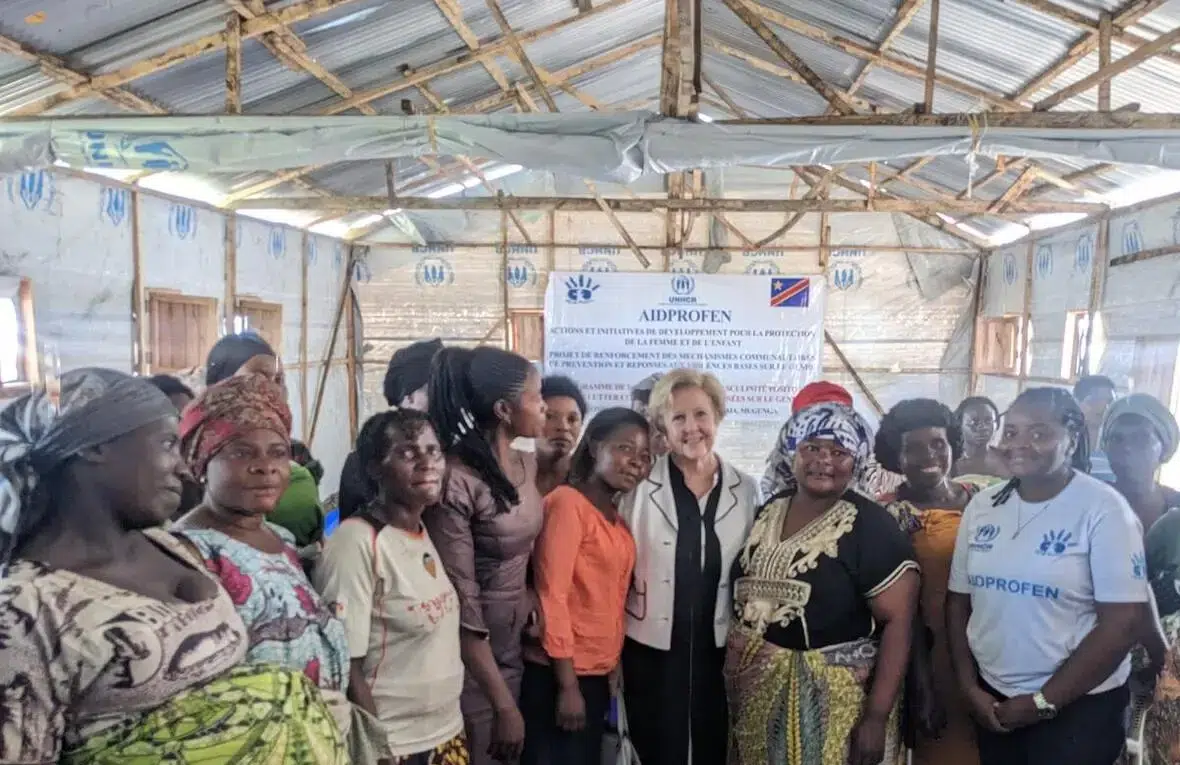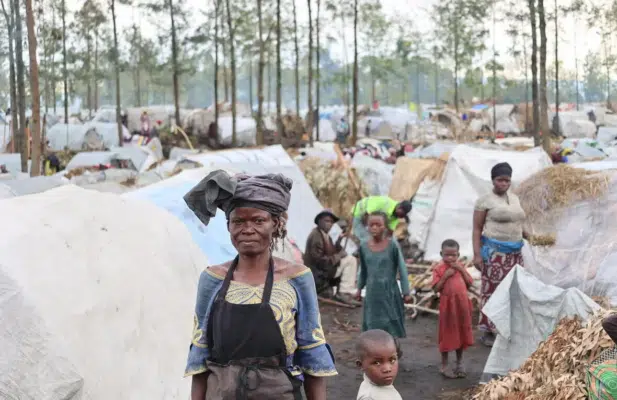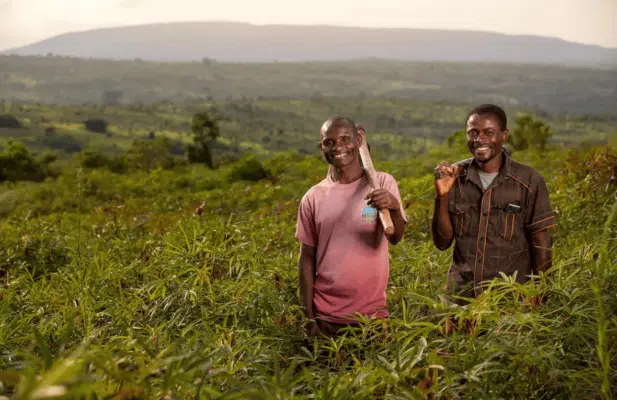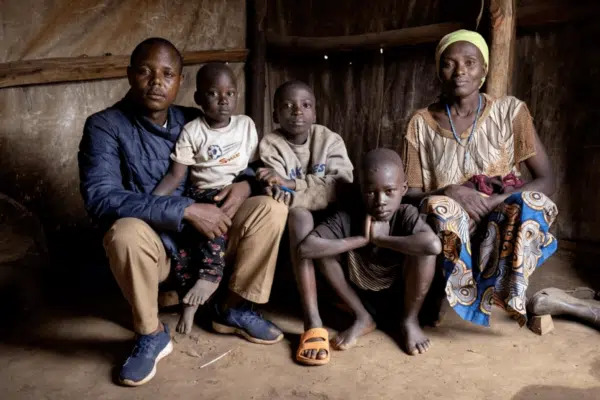
UNHCR Assistant High Commissioner Gillian Triggs (centre) meets internally displaced women in Luchagara internal displacement site, DR Congo. © UNHCR/Rachel Criswell
GENEVA – The humanitarian situation in the eastern provinces of the Democratic Republic of the Congo (DRC) has reached devastating levels as cyclical violence perpetrated by armed groups and subsequent displacement continues to impact millions of vulnerable civilians. UNHCR, the UN Refugee Agency, expresses deep concern for the dire living conditions and human rights violations, including gender-based violence, faced by over 6.2 million internally displaced people.
To fathom the scale of the crisis and explore opportunities for improving life-saving assistance to displaced populations in eastern DRC, UNHCR Assistant High Commissioner for Protection Gillian Triggs and Assistant High Commissioner for Operations Raouf Mazou visited the country this week. During their visit, they witnessed the overwhelming challenges faced by affected communities.
In Beni, in North Kivu province, the delegation met recent returnees who have received shelter assistance from UNHCR and partners. While the assistance has brought some relief, it is evident that basic needs remain unmet, posing significant challenges for the returnee population. Women in the community highlighted the challenges they face to provide food for their families. The ongoing presence of armed groups in the region has resulted in restricted access to the fertile fields, preventing cultivation and hindering their ability to sustain themselves.
“In the absence of peace, the compounded risks faced by displaced people will continue to multiply, pushing families into greater desperation,” said Triggs. “We must continue to advocate for the rights of women and girls who are suffering from this dire situation, in particular from sexual violence and abuse.”
In and around Goma, the provincial capital of North Kivu province, more than 600,000 displaced people are sheltering in makeshift structures that are ill-equipped to withstand the extreme weather conditions. The two Assistant High Commissioners participated in a distribution of blankets, tarpaulins, and other items at a spontaneous displacement site at Luchagara, just 13 kilometres from Goma, emphasizing UNHCR’s commitment to the communities.
“We remain committed to providing life-saving assistance and coordinating across key humanitarian services, including providing psychosocial care and provision of emergency shelter,” said Mazou. “However, the massive scale of displacement, including 1.2 million people who have fled conflict in North Kivu since March 2022, is a major challenge that urgently requires more support from the international community.”
Women and children are often the worst affected by large-scale displacement crises. The delegation heard first-hand accounts from families about the devastating impact of the crisis on children’s education, with a whole year of schooling lost due to the displacement. UNHCR and humanitarian partners are deeply alarmed by the increase in gender-based violence against women and girls in overcrowded displacement sites. Of great concern is the trend of increased engagement in transactional sex due to food insecurity faced by displaced households.
While insecurity persists and violent clashes continue to plague the region, opportunities for displaced people to return to their homes and livelihoods in safety and dignity remain limited. Additional resources are urgently needed to continue to support displaced families in the DRC. In 2023, UNHCR has so far received only 29 per cent of the required $233 million to meet the needs of displaced people in the country.
Media contacts:
- In Kinshasa, Joel Smith, smithj@unhcr.org, +243 82 52 57 774
- In Pretoria (regional), Hélène Caux, caux@unhcr.org, + 27 82 376 5190
- In Geneva, Eujin Byun, byun@unhcr.org, +41 79 747 8719
- In Ottawa, Levon Sevunts, sevunts@unhcr.org, +1 613-286-6975





